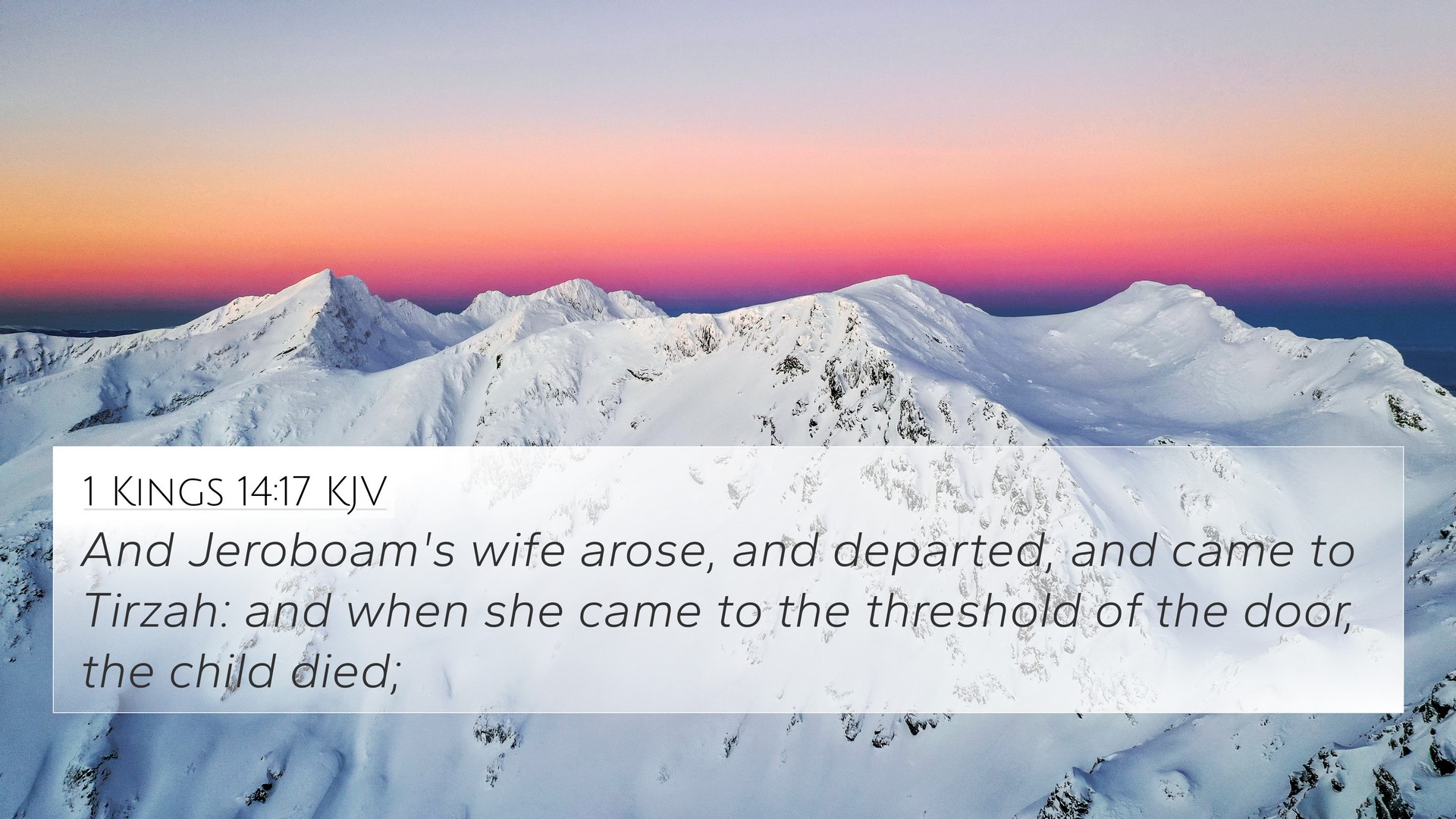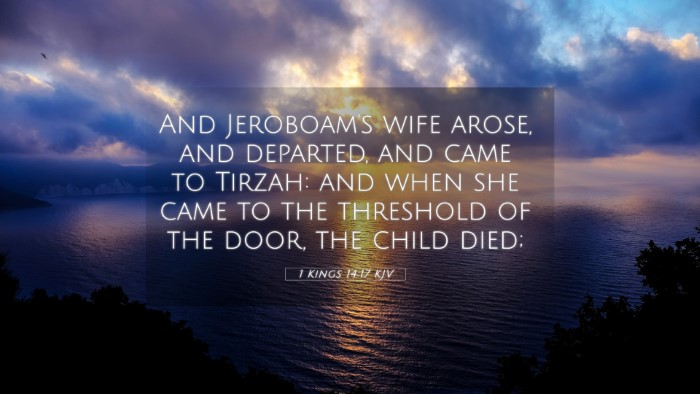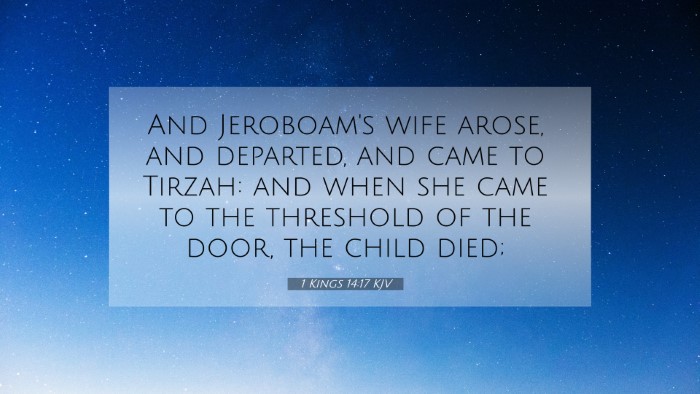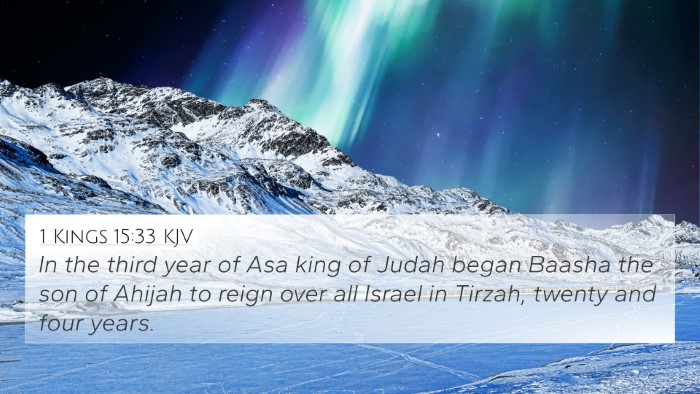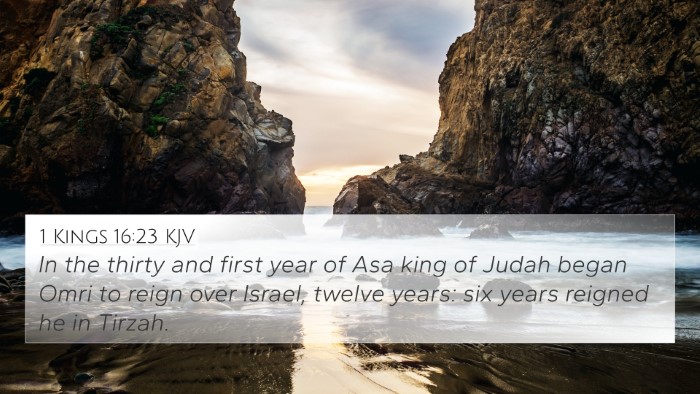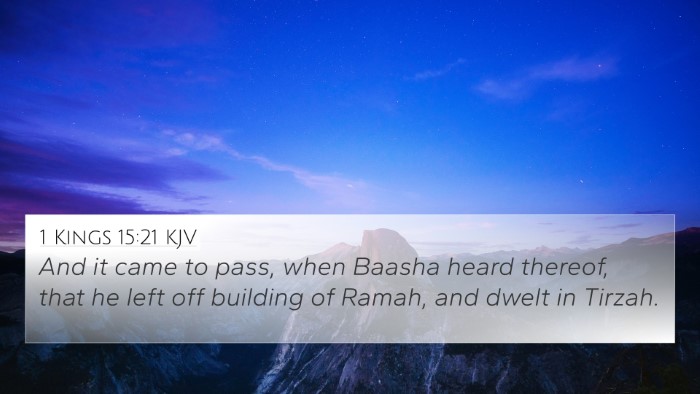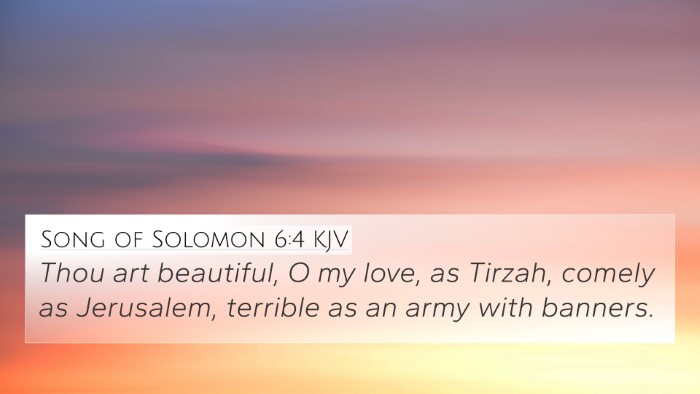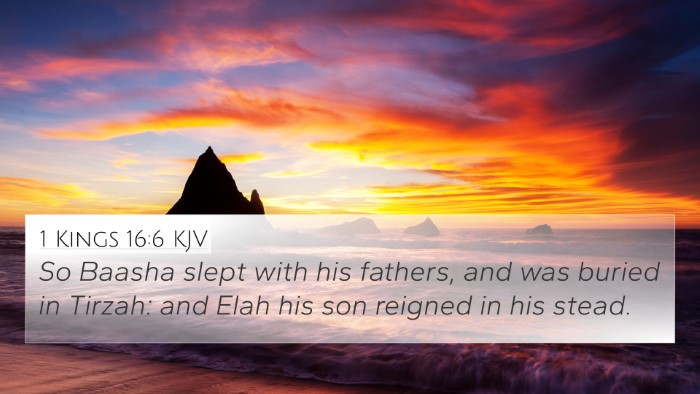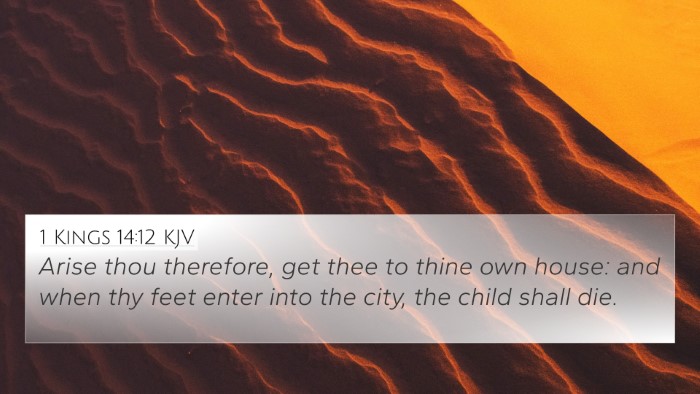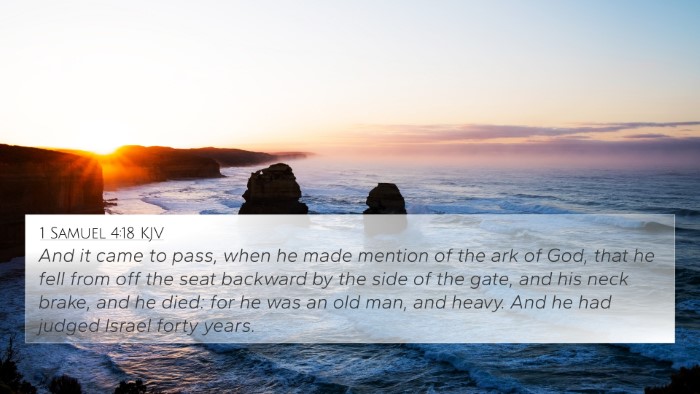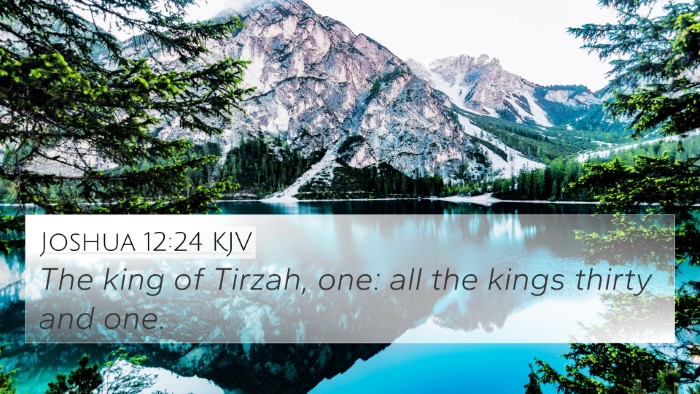Understanding 1 Kings 14:17
In 1 Kings 14:17, we encounter a pivotal moment in the narrative of the divided kingdom of Israel. This verse states:
"And Jeroboam's wife arose and departed, and came to Tirzah: and when she came to the threshold of the door, the child died."
To grasp the full meaning and implications of this passage, it is beneficial to refer to various public domain commentaries, including insights from
Matthew Henry, Albert Barnes, and Adam Clarke.
Commentary Insights
Matthew Henry's Commentary
Matthew Henry emphasizes the significance of actions and the divine judgments that often accompany them. Jeroboam’s wife's journey to the prophet Ahijah was not merely a physical trip but encapsulated the guilt and the dire situation stemming from Jeroboam’s idolatrous actions. Henry notes that the death of the child symbolizes a consequence of Jeroboam's sin against God. It serves as a poignant reminder of how one's choices can impact the family.
Albert Barnes' Notes
Albert Barnes elucidates the contrasting themes of hope and despair present in this verse. Barnes notes that Jeroboam’s wife, seeking solace and answers, encounters ultimate tragedy—the death of her child. This intertwining of fortune and misfortune highlights the futility of seeking wisdom outside of Godly counsel. He draws connections to how the death of the child reflects both a personal loss for the family and a larger theme of divine retribution.
Adam Clarke's Commentary
Adam Clarke discusses the cultural implications of this narrative. He points out that the act of disguising herself indicated Jeroboam's awareness of his unworthiness. Clarke emphasizes that the arrival at Tirzah symbolizes the transition from secrecy to exposure, a poignant gesture reflecting the inevitable truth that one's sins cannot be hidden from God. Furthermore, the child’s demise serves as a prophetic warning about the consequences of continued rebellion against divine authority.
Bible Cross-References
To deepen our understanding of 1 Kings 14:17, it is beneficial to explore Bible cross-references that relate and amplify its themes. Here are some relevant verses:
- 1 Kings 14:13 - Refers to the righteousness of the child, foreshadowing the tragedy.
- 1 Kings 15:29 - Discusses the consequences for Jeroboam's lineage as a continuation of divine judgment.
- Hosea 9:11 - Reflects on the sorrow in Israel due to iniquity, resonating with children's fates.
- Jeremiah 31:15 - Expresses lamentation over the loss of children, connecting to themes of mourning and loss.
- Exodus 20:5 - Illustrates the principle of generational consequences of sin, relevant to Jeroboam's actions.
- 2 Kings 10:30-31 - Highlights the continuing judgment upon the house of Jeroboam.
- Proverbs 13:22 - Suggests a broader biblical principle of inheritance and its impact on future generations.
Thematic Connections
The themes found in 1 Kings 14:17 are echoed throughout Scripture. The intersection of divine judgment, family consequences, and the futility of seeking guidance apart from God is a common thread. Below are highlighted thematic connections:
- Divine Retribution - A recurrent theme seen in narratives such as Genesis 4:10 and Psalm 37:28.
- Loss and Mourning - Explored in Psalm 56:8 and Matthew 2:18 regarding the sorrow over loss.
- God’s Sovereignty - Illustrated by the prophetic consequences from Isaiah 45:7.
Conclusion
In sum, 1 Kings 14:17 encapsulates profound theological truths that resonate throughout the Scriptures. Through careful biblical cross-referencing and thematic analysis, we unearth the multi-layered teachings within this verse, which remind us of the gravity of sin, the weight of parental choices, and the ultimate sovereignty of God in the face of human rebellion.
